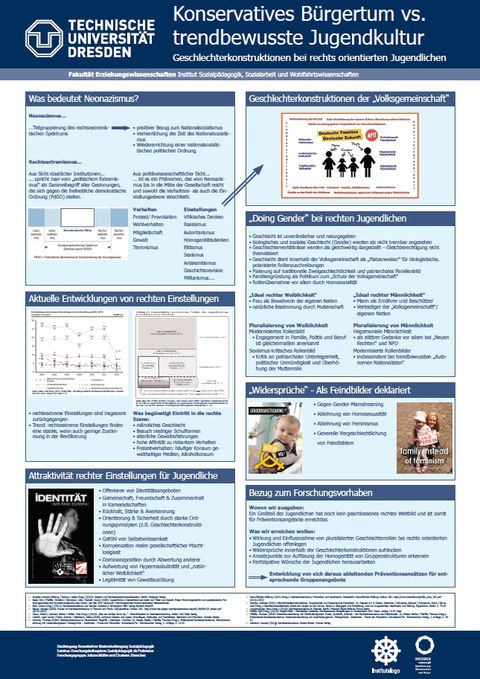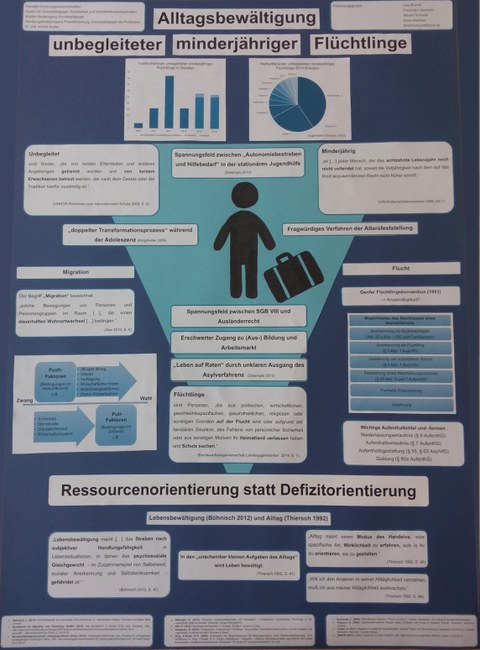Research in the Master's degree program
The Master's degree program in Social Pedagogy is designed to provide students with comprehensive and detailed knowledge of the current state of knowledge in basic and practical social pedagogical research. As part of a two-semester process, students firstly develop a theoretical perspective and an empirical research question for a field of social pedagogical action opened up by practice partners. Secondly, they acquire practical research skills and conceptual abilities in carrying out the study
The presentation of selected results should provide an insight into working with teaching-learning projects and make the students' research achievements visible.
Forschungsgruppe: Juliane Müller und Charlene Zönnchen
Forschungsgruppe: Lisa Brandt, Miriam Schmidt, Anne Weidner
Topics dealt with in the teaching-learning projects
Below you will find a list of research topics (selection) that have been or are being worked on by Master's students as part of teaching-learning projects. They refer to the thematic diversity and the correspondingly broad range of experiences within the course.
- Freedom as a critical life constellation - on the subjective perspective of young and adolescent prisoners
- Experiences and actions of children and adolescents affected by exclusion from school in residential institutions. From the perspective of children and professionals.
- Coping strategies of inmates using the example of JVA Zeithain with special consideration of participation in the creative center
- What do volunteers look for and find when working with asylum seekers in Dresden?
- Gender constructions among young people with a right-wing orientation
- Partnership in two worlds. A project study on the subjective experience of couple relationships in the everyday lives of inmates using the example of Zeithain prison.
- The professional self-image of professionals in open child and youth work
- Coping with everyday life of unaccompanied refugee minors - an ethnographic study
- Shared living arrangements for mothers, fathers and children
- "Early motherhood" - How do public youth welfare services provide help and support for young mothers in the area of conflict between risk management and resource orientation?
- Challenging behavior of workshop employees as described by professionals in a workshop for people with disabilities. A collective construction?
- How are foster children socially integrated into their two families?
- Animal husbandry in the penal system
- Voluntary work in church governing bodies
- Helping the homeless
- Participation in youth work
- Hellerau
- How do ASD employees experience working with unaccompanied refugee minors?


